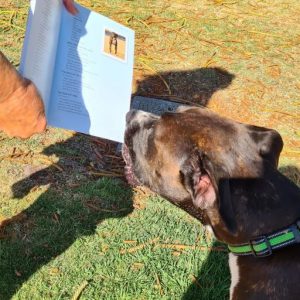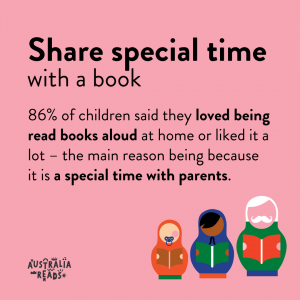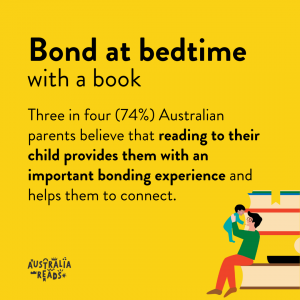School is back! School is back!
I can hear the relieved sighs of parents across the country as the summer holidays end and the school year begins.
Or maybe, you are genuinely sad to see your babies head back to school, after a wonderful six weeks of togetherness.
More likely you are somewhere in between. That was me when my own children were at school. Happy that a routine could be established, but also a little sad that the end of long unstructured days of playing, or swimming, or not doing much at all had come. And, of course, the mixed feelings about seeing my babies growing up – another school grade higher, and the hope that they would be happy in their new classes, with their new teachers and friends.
All of this is a longish introduction to what I really want to talk about today. Because, as you may realise, I am passionate about reading, writing and all things literacy, and I know that many many parents spend a lot of time thinking about how best to support their children in their development of literacy.
Maybe you worry about what reading level your child is. Maybe your child is due to take a NAPLAN test this year, and you worry they won’t do well. Maybe your child struggled with writing (or reading, or spelling, or all three) last year, and you want to help them improve this year. Or, perhaps, your child did well last year and you want to ensure this continues.
There is a lot of advice online, and elsewhere, and a lot of programs, books, tutor services and more you can buy. But, while I am not here to tell you what you should or shouldn’t spend your money on, I do want to tell you the one thing you can do for free to help your child’s literacy development. Are you ready? Here it is:
MAKE READING FUN.
Reading should be pleasurable. Like a chocolate milkshake, a dive in a pool on a hot day, or the sight of a kitten playing with a piece of string, reading should make you smile, or sigh with contentment, or just feel better after a long day.
Easy huh? If you’ve ever battled with your child to do their homework reading, or even just to pick up a book at all, you might be rolling your eyes right now, I know. In a moment I’ll offer some ways to make reading fun. First, though, I want to tell you WHY it matters.
Reading for pleasure is not just a good thing – its is THE number one way to ensure success in reading, writing, and, in fact, academic achievement in general. How do I know this? Because there is research to prove it.
In the UK the British Cohort Study found that children who read for pleasure improved more in reading, writing and even mathematics than those who didn’t. There was a stronger correlation between reading for pleasure than multiple other factors, including the parents’ education or household income. You can read more about this study and its findings here. Even more important than academic success, however, these studies have also shown that children who read for pleasure also have stronger empathy, understanding of other cultures and decision making skills (you can read a longer report here .
Not convinced yet? Australia Reads has done the research for you (and me!) having audited 134 research reports and articles from around the world, with key findings summarised here.
audited 134 research reports and articles from around the world, with key findings summarised here.
In short, reading for pleasure (fun!) will help your child get better at the three R’s: reading, writing, and arithmetic (or, if you are worried abouts cores, the three strands of NAPLAN) , but also help them socially, and emotionally. People who read for pleasure are nicer!
But how do you, parents/carers/grandparents/significant role models help make this happen? Here are five simple things you can do.
- Let your child choose their reading materials. Have books at home, but also join your local library and take your child there. If this is difficult, encourage your child to visit the school library outside of class borrowing times. Note that I say ‘reading materials’. I LOVE books. But if your child wants to read magazines, comics, graphic novels, the back of a cereal packet, nonfiction, ebooks – LET THEM. This includes things you think are ‘too easy’ or that they have already read a billion times before.
- Talk about books. Don’t make it a test – don’t quiz them on what they have read, but have organic conversations about what they are reading. Express an interest. One way to do this is to actually read the same books your child is reading, but if you are time-poor, get them to tell you about it, and then relate it to something you have read.
- Don’t focus on reading levels, reading ages, scores and NAPLAN results. In the bad-old days, a lot of children would have had no idea of testing results. Test results were for teachers’ use, and even parents did not always know the results. I’m not advocating for a return to this. Knowing how your child is doing is helpful. And children do know if they are on level 11 and their best friend is level 15. But when the focus becomes numbers and scores, then reading (and writing) becomes a competition, and children can easily feel that reading is something you are ‘good’ or ‘bad’ at. Level 11 might be an amazing achievement for your child, given where they were at a year ago. And , because children develop and learn at different paces, they be at one level for a long time, then jump through several levels in quick succession. But pushing for them to see literacy as a number takes away the pleasure and, as we learnt earlier, pleasure is key.
- YOU, the parent/grandparent/rolemodel need to read. Back to the
 research (which you will find here: children whose parents read for pleasure and who have books in their homes are themselves better readers. Actually, this shouldn’t come as a surprise, but think of it like this: from a very young age, children want to be like their role models, they want to be ‘big’, to mimic what they see older people doing. When you read, you are showing that it is a good thing to do. It is pleasurable. Instead of saying ‘do this, it is good for you’, you are showing ‘do this, it is fun.’ Like force feeding vegetables, force feeding reading, when you yourself don’t do it, is counterintuitive. The good news is, if you are time poor (like me!), there are lots of shorter books you can read in the time it has taken you to read this blog post. Read your child’s books! This will help you with point 2 above. Taking some time each day to read instead of scrolling on your phone, or watching reality TV, or ironing (seriously! Reading is much more fun) is an investment in your child’s future – but will also make YOU a nicer person, too.
research (which you will find here: children whose parents read for pleasure and who have books in their homes are themselves better readers. Actually, this shouldn’t come as a surprise, but think of it like this: from a very young age, children want to be like their role models, they want to be ‘big’, to mimic what they see older people doing. When you read, you are showing that it is a good thing to do. It is pleasurable. Instead of saying ‘do this, it is good for you’, you are showing ‘do this, it is fun.’ Like force feeding vegetables, force feeding reading, when you yourself don’t do it, is counterintuitive. The good news is, if you are time poor (like me!), there are lots of shorter books you can read in the time it has taken you to read this blog post. Read your child’s books! This will help you with point 2 above. Taking some time each day to read instead of scrolling on your phone, or watching reality TV, or ironing (seriously! Reading is much more fun) is an investment in your child’s future – but will also make YOU a nicer person, too. - Make reading social. As well as talking to your child about their reading, encourage them to talk about it, too. Lots of libraries and bookshops have free book clubs for children to join, where they can talk to other kids about their reading. If there isn’t one in your local area, suggest it at your local library. Some bookstores also love to have customer reviews for their shelves or websites. If your child loves a book, help them to find a place to share their review. If this isn’t happening local, maybe you can post their review to your social media accounts, and then let them see the likes and attention it gets. If none of this appeals, encourage family members to ask your child what they have been reading, and sharing what they have been reading in return.
There are lots of other ways to make reading fun – if you have a suggestion , leave a comment. But mostly, thank you for reading this far, and for caring about the importance of reading for pleasure. It’s hard work being a parent. You’re doing great! Have a wonderful school year 😊





